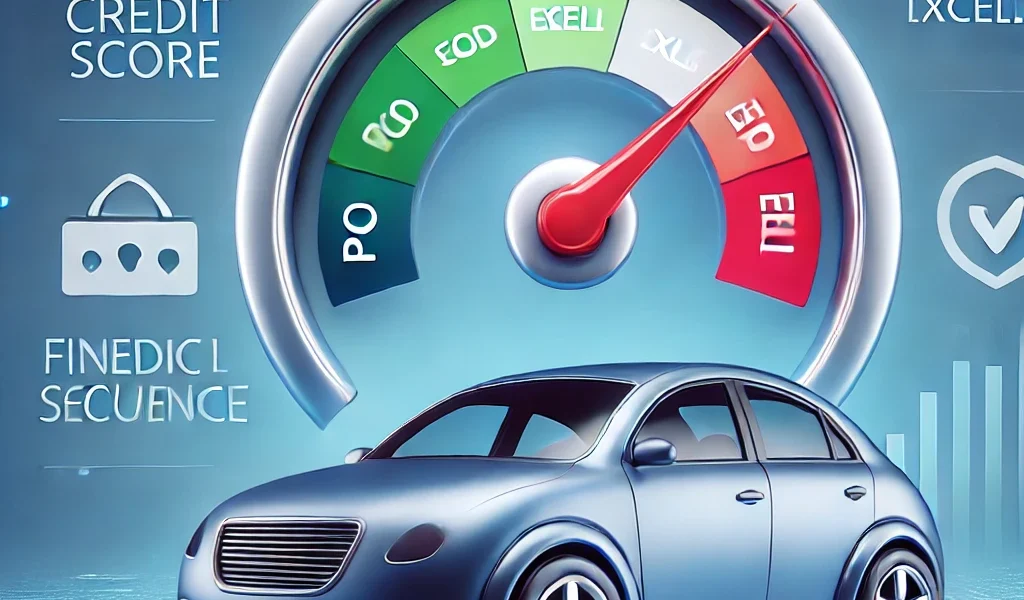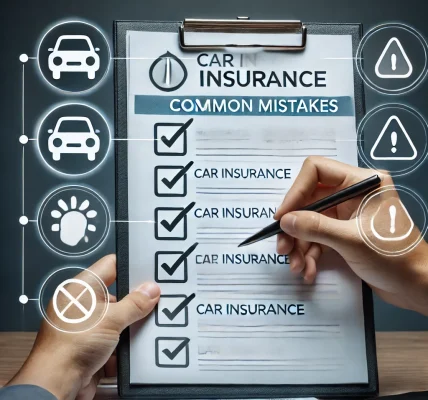When it comes to determining car insurance premiums, most people think factors like driving history, vehicle type, and location play the biggest roles. However, one often-overlooked factor is credit score. Many insurance companies use credit-based insurance scores to assess risk and determine policy rates. In this article, we will explore how credit scores affect car insurance rates, why insurers consider them, and what steps you can take to improve your score and lower your premiums.
Understanding the Connection Between Credit Scores and Car Insurance RatesYour credit score is a numerical representation of your creditworthiness, typically ranging from 300 to 850. It is used by lenders to assess your ability to repay loans. Many insurance companies also consider your credit score when calculating your car insurance premium.
Studies have shown a correlation between lower credit scores and a higher likelihood of filing insurance claims. As a result, insurers often charge higher premiums to individuals with poor credit scores, assuming they pose a greater financial risk. Conversely, policyholders with good or excellent credit scores tend to receive lower premiums.
Why Do Insurers Use Credit Scores?Insurance companies use credit scores as part of their risk assessment process. Here’s why:
Predicting Risk – Research indicates that individuals with lower credit scores are statistically more likely to file claims than those with higher scores.
Financial Responsibility – A high credit score is often viewed as a sign of financial responsibility, which insurers associate with lower risk.
Regulatory Approval – Many states in the U.S. allow insurers to use credit-based insurance scores as a factor in determining premiums, though some have restrictions.
How Your Credit Score Affects Your Car Insurance PremiumDepending on your credit score, your car insurance rates can fluctuate significantly. Here’s a breakdown of how different credit score ranges may impact premiums:
- Excellent Credit (750 – 850)Lowest insurance premiums.
Eligible for special discounts and better coverage options.
Considered low risk by insurers. - Good Credit (700 – 749)Lower-than-average insurance premiums.
Still considered financially responsible by insurers. - Fair Credit (650 – 699)Moderate insurance premiums.
May miss out on some discounts.
May need to explore multiple providers for competitive rates. - Poor Credit (600 – 649)Higher-than-average insurance premiums.
May be required to pay a higher deposit.
Fewer discount opportunities. - Very Poor Credit (300 – 599)Highest insurance premiums.
May face difficulty obtaining coverage from certain insurers.
Limited options for discounts.
Steps to Improve Your Credit Score and Lower Your Car Insurance PremiumIf you have a lower credit score, there are proactive steps you can take to improve it and potentially reduce your insurance costs: - Pay Your Bills on TimeLate or missed payments can negatively impact your credit score. Setting up automatic payments or reminders can help ensure timely payments.
- Reduce Your Credit Utilization RatioCredit utilization refers to how much of your available credit you’re using. A lower credit utilization rate (below 30%) is favorable for improving your score.
- Check Your Credit Report for ErrorsMistakes on your credit report can negatively impact your score. Obtain a free copy of your credit report from agencies like Equifax, Experian, and TransUnion, and dispute any errors you find.
- Avoid Opening Too Many Credit Accounts at OnceEach new credit inquiry can slightly lower your score. Only apply for credit when necessary.
- Keep Older Credit Accounts OpenThe length of your credit history matters. Keeping older accounts open can positively impact your score, as they contribute to a longer credit history.
- Diversify Your Credit MixHaving different types of credit (credit cards, auto loans, mortgages) and managing them responsibly can improve your score over time.
States with Restrictions on Credit-Based Insurance ScoringWhile many states allow insurers to consider credit scores, some have restrictions or outright bans on the practice. States that limit or prohibit the use of credit scores in determining insurance rates include:
California – Prohibits the use of credit scores in auto insurance pricing.
Hawaii – Bans credit-based insurance scoring for car insurance.
Massachusetts – Prohibits insurers from using credit scores.
Michigan – Restrictions apply to prevent unfair discrimination.
Washington – Implemented a temporary ban on the use of credit scores for determining premiums.
If you live in one of these states, your credit score may not impact your car insurance rates. However, in most other states, insurers may use it as a significant factor.
Other Factors That Affect Your Car Insurance PremiumsWhile your credit score plays a role in your car insurance rates, insurers also consider several other factors, including:
Driving History – Accidents, traffic violations, and DUIs can increase premiums.
Age and Gender – Younger and less experienced drivers often pay higher rates.
Location – Rates vary depending on where you live (urban vs. rural areas).
Vehicle Type – Luxury or high-performance vehicles typically have higher insurance costs.
Coverage Level – The type of coverage (liability, comprehensive, collision) affects premium amounts.
Final ThoughtsYour credit score can have a significant impact on your car insurance rates, especially in states where insurers are allowed to use it as a factor. Maintaining a good credit score can lead to lower premiums, better coverage options, and access to discounts.
By focusing on financial responsibility—such as making timely payments, reducing credit utilization, and regularly monitoring your credit—you can improve your score and potentially save hundreds of dollars on car insurance.
Before purchasing or renewing an insurance policy, it’s always a good idea to shop around, compare quotes, and inquire about discounts to get the best possible rate. If your credit score is on the lower side, working to improve it can benefit not just your car insurance rates but your overall financial well-being.
Would you like to explore additional ways to save on car insurance? Feel free to check out our other expert guides for more insights!


